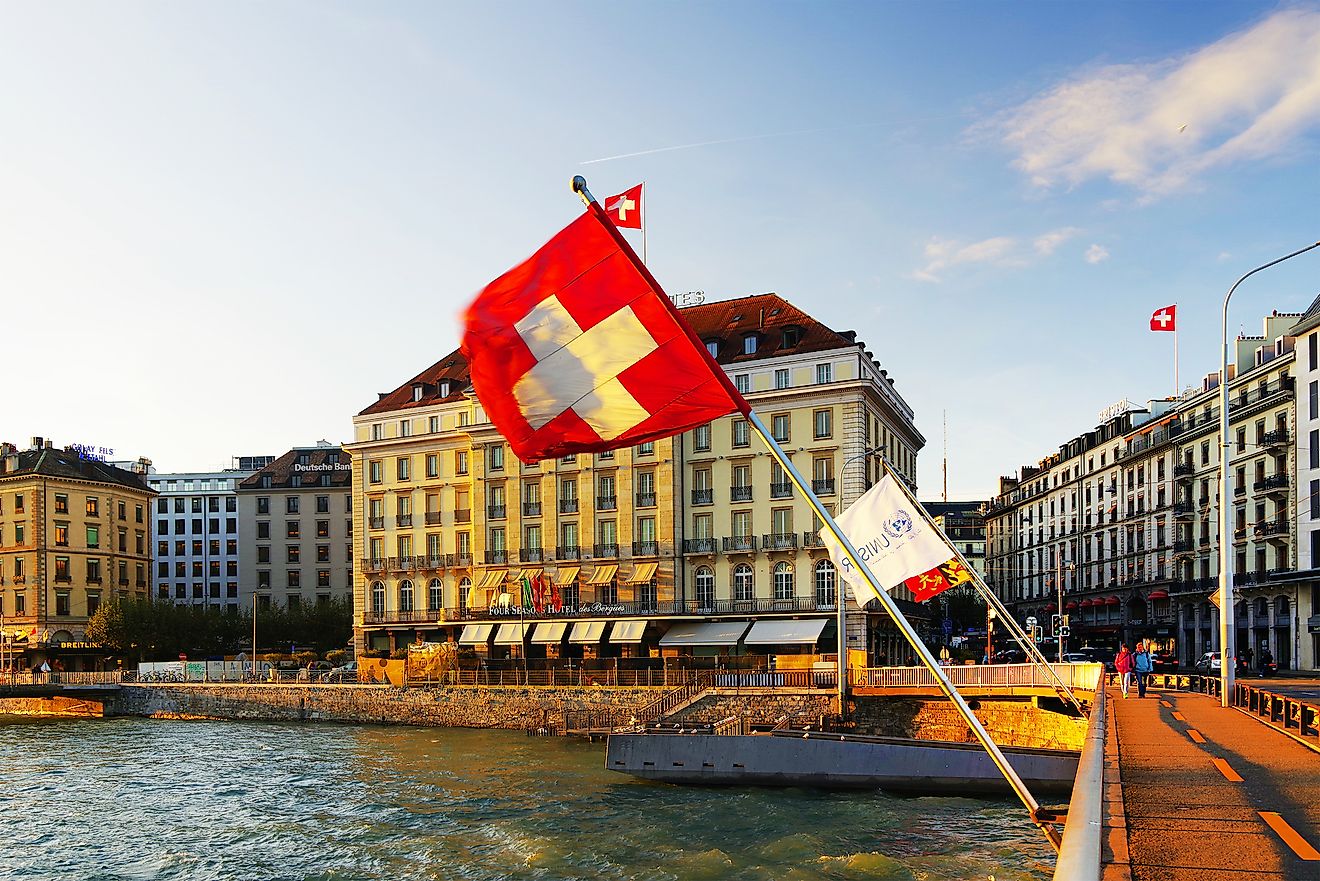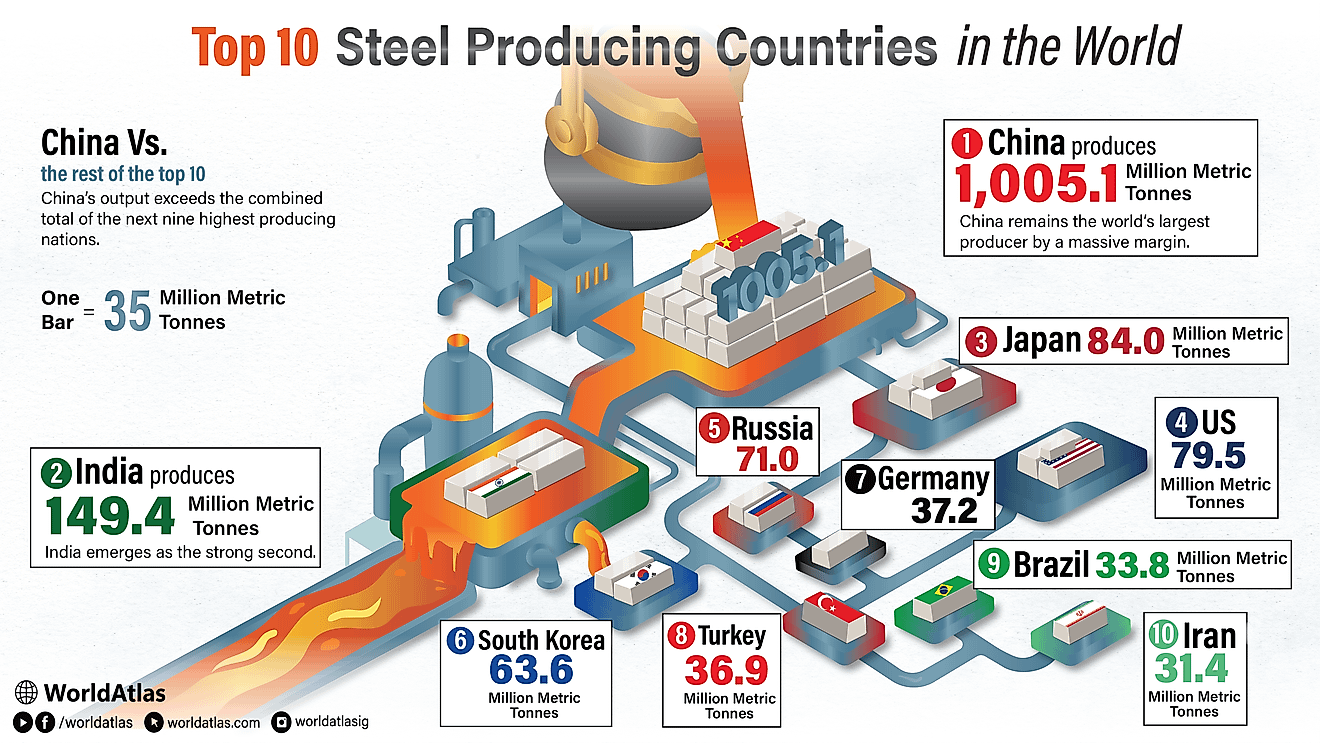The 10 Most Innovative Economies In The World

- Switzerland is the most innovative country for the ninth consecutive year
- Israel was ranked among the top ten innovative economies for the first time in 2019
- The departure of Broadcom lowers Singapore's innovative ranking
Innovation is no longer the reserve of wealthy countries, as evidenced by the Global Innovation Index for the past decade. Innovators in developing countries have shown the world how to maximize production using limited resources. In India, for example, a company innovated a machine to detect malady disease that affects premature babies and blinds them if not remedied in time. Rather than purchasing expensive equipment, Indian hospitals adopted the technology and are conducting more successful diagnoses than ever before. In Rwanda, drones are used to dispatch medicine and blood samples across hospitals. Healthcare is among the industries that contribute significantly to the global innovation ecosystem and the reason why the 2019 Global Innovation Index was themed “Creating Healthy Lives – The Future of Medical Innovation.” The global innovation index uses 81 metrics to determine the innovativeness of a country. Although innovation is growing throughout the world, Europe, Asia, and the United States continue to dominate.
The Most Innovative Economies In the World
Switzerland
Switzerland led the world in innovation in 2019 as the country took up the pole position for the 9th consecutive year. Switzerland also ranked first in knowledge and technology and creativity and made improvements in market sophistication, business sophistication, infrastructure, online government services, and third in E-participation. However, it dropped in human capital and research, and institutions. Switzerland ranked fourth in the quality of innovation behind the United States, Germany, and Japan. Factors that helped maintain the top spot include government support for innovative ideas, soft power approach, ease of doing business, and a favorable business environment.
Sweden
Sweden recovered its second position in 2019 after it was ousted to the third spot in 2018, but it remains the top-ranking Nordic country. Sweden dropped one rank to fourth in innovation input and retained the third spot in innovation output. It ranked among the top 10 in all pillars except market sophistication, where it dropped two places to 14th. Nevertheless, it improved in business sophistication, infrastructure, knowledge and technology, and human capital and research. Sweden has excellent infrastructure, political stability, economic stability, and a good business environment that attracts innovators.
United States
The United States ranked third, in part due to improvements in grading pillars and availability of more data. The North American state improved in five of the seven innovation pillars, namely: institutions, human capital and research, business sophistication, infrastructure, and knowledge and technology. The United States maintained its top position in market sophistication. It also ranked first in the quality of innovation above Japan and Switzerland. The US is a large market with a diverse population, quality education, and hosts world leaders in technology such as Facebook, Google, Apple, Microsoft, and Amazon.
The Netherlands
The 2019 Global Innovation Index ranked the Netherlands as the fourth most innovative country. It was 2nd in innovation output and 11th in innovation input. The European state ranked 3rd in knowledge and technology, 5th in creativity, and managed to be among the top 25 countries in all grading pillars. Some of the Netherlands innovative projects include the Amsterdam energy Arena, SkinVision; a technology that allows people to detect the signs of skin cancer on their smartphones, 3D printed houses, air-cleaning bicycles, and hyperloop. Innovation thrives in the country due to political and economic stability, as well as good education and a conducive business environment.
The United Kingdom
The United Kingdom ranked 5th in the 2019 Global Innovation Index. It took up the fifth spot in innovation input and fourth in innovation output. The United Kingdom improved in market sophistication and knowledge and technology compared to 2018. It maintains the first spot in quality of scientific publications while reporting strong ranks in school life expectancy, ICT access, quality of university education, and spending on computer software. The United Kingdom collaborates with other European States in large in complex and expensive programs. Brexit is expected to offer a new challenge to the country as it leaves the European Union.
Finland
Finland moved to the sixth position in 2019, continuing its rank improvement from 2017. It ranked 7th in both innovation output and innovation input indices. The state made improvements in three grading pillars; human capital and research, infrastructure, and business sophistication. Finland remains a world leader in E-participation, and the rule of law while reporting strong ranks in school life expectancy, ease of resolving insolvency, and patent families. Some innovative products designed in Finland include the heart rate monitor, pedestrian reflectors, and the flight data recorder.
Denmark
Denmark improved by one spot to rank seventh in 2019. It rose by two places to rank fifth in innovation input and one place to rank 12th in innovation output. Denmark ranked in the top 15 in all grading pillars. The country made tremendous improvements in human capital and research, education, and ICTs. Denmark supports its innovators by creating a friendly environment and incentives. An example is the Innovation Centre Denmark, which was set up to help Danish startups, businesses, and research institutions access international knowledge and Innovation environments.
Singapore
Singapore is the 8th most innovative country in the world. It occupied the pole position in innovative input indices and 15th in output indices. However, lost positions in all grading pillars except for institutions where it ranked first for the consecutive year. Singapore dropped from 26th to 30th in global research and development after technology hardware and equipment company Broadcom moved its operation back to the United States. Despite the setback, Singapore is still a popular destination for tech startups.
Germany
Germany retained the ninth spot for the third consecutive year but rose five ranks to 12th in innovation input indices and ranked ninth in output indices. Germany ranked among the top 20 countries across all grading pillars. The country is developing new technologies at a faster rate thanks to its thriving economy, technological prowess, and years of perfecting research and development. German automobiles are known for their durability and efficiency. Its manufacturing sector produces quality products.
Israel
Israel broke into the top10 innovative economies in the world for the first time in 2019 after reporting significant improvement for years. It is also the most innovative country in North Africa and Western Asia region. Israel ranked 3rd in business sophistication and 7th in knowledge and technology. Israel’s journey in innovation began with the introduction of collective communities “Kibbutzim,” where immigrants experimented on social structures and other cultural methods. Technical skills, teamwork, and problem-solving techniques learned during military service contribute to the success of entrepreneurs on a global scale. As a result, Israel has a high concentration of Nobel Prize lyrics in comparison to its population.
The 10 Most Innovative Economies In The World
| Rank | Country | Index score for the most innovative economies worldwide in 2019 (100=most innovative) |
|---|---|---|
| 1 | South Korea | 87.38 |
| 2 | Germany | 87.30 |
| 3 | Finland | 85.57 |
| 4 | Switzerland | 85.49 |
| 5 | Israel | 84.78 |
| 6 | Singapore | 84.49 |
| 7 | Sweden | 84.15 |
| 8 | United States | 83.21 |
| 9 | Japan | 81.96 |
| 10 | France | 81.67 |











